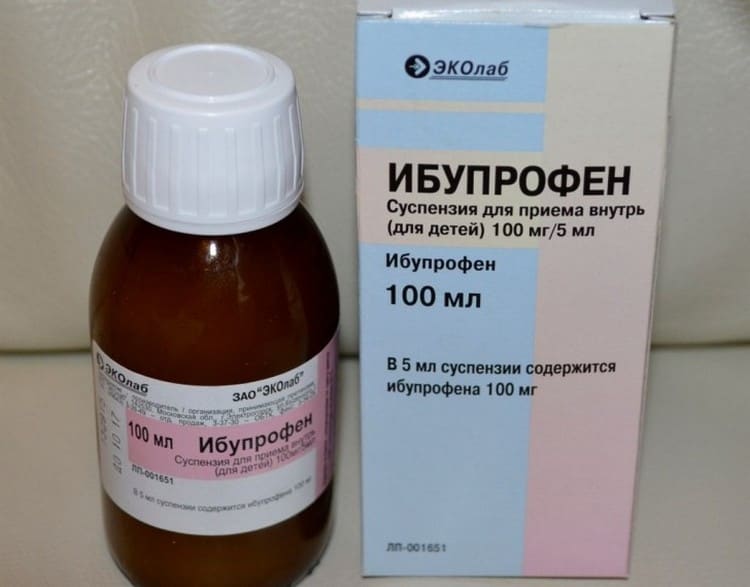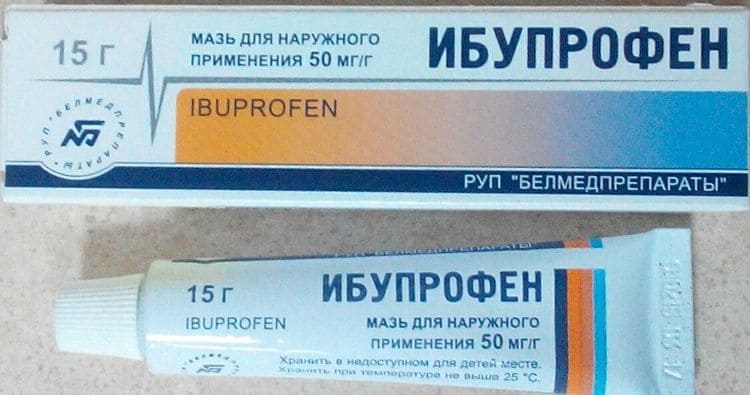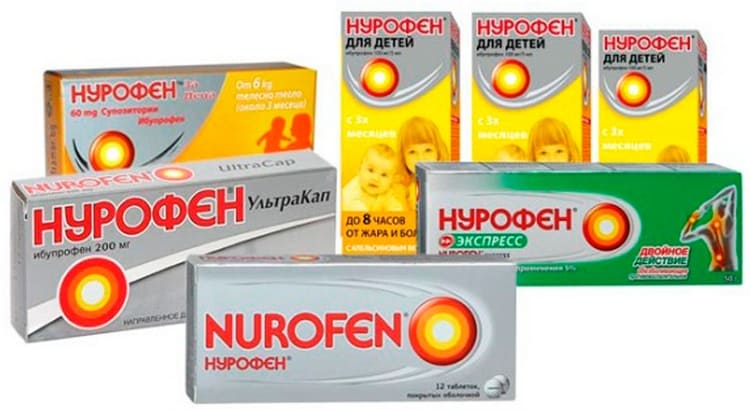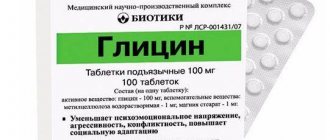A child can only be happy when the mother is happy. This is especially true for children who are breastfed. Since scientists have long proven that hormones of happiness, just like other colors of our state and mood, are transferred to the baby along with breast milk. How will mom be happy if she has a headache or has a fever? Of course, she will resort to medications to restore her body and give herself fully to her family.
Modern pharmaceuticals offer a wide selection of medicines. Today, I want to discuss with you the effect on the body and the possibility of using a drug such as Ibuprofen during breastfeeding. Let's find out whether it can be used during this period, as well as the possibility of side effects.
Release form and indications for use
The medicine is available in the form of tablets, capsules, syrup, ointment, gel and suppositories. If you choose tablets, they are sold in cardboard packaging, in blisters of 10 or 20 pieces.
- They are round, flat-cylindrical tablets, with a faint odor of lemon or orange. In color you can find them from pure white to yellowish white.
- The suspension is usually sold in dark glass bottles and cardboard packaging. The set includes a measuring spoon and an instruction sheet.

- Rectal suppositories are white or almost white in color and have a torpedo shape. They are produced in contour cells, in cardboard packaging of 10 pieces.

- The gel has a specific odor and is transparent. May be colorless or with a light yellow tint.

- The ointment is available in white color and may also have a specific odor.

In all variants, the main active ingredient is ibuprofen. Let's look at what problems the medicine targets. So, it is assigned when:
- headaches and migraines;
- muscle pain;
- joint pain, lower back pain and radiculitis, with ligament damage;
- toothache and menstrual pain;
- ENT diseases;
- elevated temperature of various origins, be it an infectious disease, cold, sore throat, flu, post-vaccination reaction.
- rheumatoid arthritis and osteoarthritis.

In addition, it can be prescribed as an antipyretic, analgesic, and anti-inflammatory agent. This drug reduces pain, relieves morning swelling of joints and stiffness of movements, and helps increase the amplitude of the latter.
Use during lactation
Despite the fact that the drug can cope well with high fever, the cause of which is, for example, mastitis, lactostasis or an elementary cold, not all manufacturers can recommend it for use during breastfeeding.
It is worth noting that manufacturers of tablets, ointments and suppositories most often do not recommend their use during lactation. However, this mark in the instructions simply says that the manufacturers did not conduct studies on women during breastfeeding and cannot guarantee the occurrence of side effects.
The use of baby syrup for the treatment of children over 3 months and young mothers during breastfeeding is definitely allowed. However, before taking the medicine, you should definitely consult with a pediatrician or therapist.

In addition, there are some subtleties in using this medicine; by listening to them, you can minimize the concentration of the medicine in milk. By the way, its permissible concentration is 0.7%.
The maximum possible dose you can take is 400 mg every 6 hours, that is, 1-2 tablets or 20 ml syrup. It is better to take it during or immediately after a meal, swallowing the tablet immediately and drinking water. The same goes for syrup. The course of treatment without consulting a doctor can be no more than 5 days.
Can it be used during breastfeeding?
You can take this medicine while breastfeeding, following the instructions and recommendations of the doctor.
Reference. The drug does not contain substances that, at acceptable concentrations, will adversely affect the quality of mother's milk and, accordingly, the health of the child. Ibuprofen will help mommy cope with inflammation, pain and high fever, without harming herself or her child.
But first, it is still better to consult a doctor, since there are some special instructions for treatment with this drug during such a crucial period of a woman’s life.
Rules for using Ibuprofen while breastfeeding
The rule for taking this drug is aimed at reducing its concentration in milk and, accordingly, it enters the child’s body in the smallest amount. To do this, you just need to properly plan the breastfeeding process.
Most of the active substance of the drug accumulates in the blood within 1-2 hours after administration. Accordingly, you should choose the time so that you can feed the baby, then eat yourself and immediately take the medicine. In this case, at the end of this time window, all elements of the drug will disintegrate and be eliminated by the body.

Contraindications and side effects
Contraindications are:
- hypersensitivity to ibuprofen or any other component of the drug;
- gastric ulcer, including bleeding in the gastrointestinal tract, inflammatory processes in the stomach and colitis;
- liver diseases and kidney failure;
- hypersensitivity reaction to the use of other anti-inflammatory drugs, for example, urticaria, Quincke's edema or bronchial asthma;
- disturbances in the process of blood clotting;
- diseases of the cardiovascular system.

Most often, the drug is prescribed in the form of tablets or syrup, and all of the above contraindications apply specifically to these forms of release of the drug. However, many women are prescribed Ibuprofen ointment to treat lower back pain, joint pain, sprains and bruises.

Based on reviews from young mothers, we can say that this form of the drug relieves pain much faster and more effectively. But it also has its limitations in application:
- sensitivity to any component of the drug;
- eczema;
- wounds and violation of skin integrity;
- dermatoses.
Despite the fact that reviews say that side effects occur extremely rarely, these medications should be used with extreme caution during breastfeeding. For any manifestation of an allergic reaction in the form of: rash, itching, redness or swelling, as well as nausea, vomiting, diarrhea, dizziness, headache, increased blood pressure, nervous system stimulation, insomnia, visual impairment - you should immediately stop taking the drug and contact consult a doctor.
Sometimes, in cases where self-prescription of Ibuprofen does not bring the expected result, you should stop using the drug and seek help from a doctor.
Correct use of Ibuprofen and compliance with all recommendations will allow the mother to cope with the disease and, at the same time, not harm the baby.

Recommendations for admission
In order to get the maximum benefit from the medicine for yourself and at the same time not harm the baby, you need to follow certain recommendations.
Which release form is best?
Ibuprofen is available in tablet and ointment form. In what form to use the medicine depends on what exactly is bothering the woman.
If we are talking about pain in the muscles, back, neck, then it is recommended to be treated with ointment - it will both relieve pain and eliminate inflammation. Although Ibuprofen in tablet form will give the desired result.
If you need to cope with high fever, headache, aches throughout the body or inflammation in the internal organs, then tablets will be effective. It is also recommended, if possible, to replace tablets with ointment if there are problems in the gastrointestinal tract.
Dosage and course duration
When breastfeeding while being treated with Ibuprofen, the following recommendations should be followed:
- the maximum daily dose of the drug should not exceed 800 mg, and a single dose - 400 mg;
- It is better to divide the daily dose prescribed by the doctor into 2-3 doses, and it is better to take the medicine after meals;
- It is recommended to take the medicine at regular intervals, and feed the baby either before taking it, or about 3 hours after taking the drug; the rest of the milk should be expressed, but not used for feeding;
- the course of treatment should not exceed 3 days during lactation.
Recommendation. To extend the course of treatment with Ibuprofen and adjust the dosage, you should always consult your doctor.
Alternative to Ibuprofen
An alternative exists, and the choice is quite large. You can choose from traditional medicine or from medications.
“Competitors” to Ibuprofen are: Nurofen, Ibuprom, Solpaflex, Mig 200.

If you want to try to bring down the temperature with the help of folk remedies, try brewing tea from: linden, currants, raspberries, honey, citrus and herbal tea. Be careful with certain foods only, such as honey, citrus or raspberries. Since their use can lead to allergies in the baby.

You can also use herbal infusions for inhalation, this way you will be able to relieve the unpleasant symptoms caused by a cold. But be prepared that drinking plenty of hot drinks will lead to an increase in lactation. Here's another secret for you on how to increase it if you couldn't do it before.
Video: what medications are allowed during breastfeeding
Ibuprofen may not always be prescribed to reduce fever; doctors often prescribe paracetamol or other medications. But how can you determine whether the prescribed drug is compatible with breastfeeding? I invite you to learn about this from a short video. It also details why some medications are considered acceptable and others are not.
Most often, doctors try to preserve breastfeeding at fever and select medications for treatment that will not interfere with this process. Ibuprofen, like paracetamol, is on the list of medications that do not harm the breastfeeding process. However, before you decide to use it, you should consult your doctor and clarify the compatibility of the drug with breastfeeding.
Now it's your turn to share your experience and feedback. Did you have any illnesses during breastfeeding that you were prescribed for treatment? Did ibuprofen relieve the symptoms that were bothering you? Tell us more about this in the comments on the site.
Folk remedies
What to take for headaches during breastfeeding if it is caused by mental strain and stress? Women often experience depression after childbirth. It can strain the brain and cause discomfort. Of course, you can eliminate them using the drugs described above.
You need to know that these drugs will not relieve you of pain that has arisen as a result of an inflammatory process, a cold, or the growth of a tumor in the brain.
No matter how safe and harmless the proposed medications may be, a nursing woman should try to do without them whenever possible. You can get rid of headaches, especially if they are caused by fatigue and stress, using alternative methods. And to begin with, no matter how difficult it may be, mom just needs to get a good night's sleep and set aside a few minutes for quiet rest during the day. If it’s absolutely impossible, you need to get used to sleeping with your well-fed child, and not trying to do everything in the world during these hours.
Sweet tea helps nursing mothers, especially if you add herbs to it - mint, lemon balm or chamomile. Although this drink is usually not recommended during feeding, it is better to drink it rather than a pill. And to reduce the risks, it is better to drink tea after the next feeding.
When you have a headache, massage of the scalp and neck area, long walks, and a warm shower will be reliable helpers during breastfeeding. You can also apply a cloth compress, alternating cold and heat every two minutes. This will normalize the blood vessels if a spasm occurs, and the woman will feel better.
If you have suitable “equipment” in your home, you can add aromatherapy. Ginger, lavender or peppermint essential oils are good for relaxing and getting rid of cephalalgia. 3-5 drops in an aroma lamp refresh the air and relieve pain. If you don’t have a lamp in the house, you can apply the oil to the bow or a regular cotton rag, placing them closer to you.
Folk substitutes for tablets also include:
- lemon. If the mother and child do not suffer from allergies to it, you can suck on a slice of lemon, extending this process for 10 minutes, and rub the peel on your temples;
- cabbage leaf It is washed and beaten with a hammer, they cover the area where the pain is located, tying the head with a warm (preferably woolen) scarf;
- chamomile tea. Soothes and relieves pain, can be taken no more than 2 times a day;
- burdock. The leaves are thoroughly crushed in the hands and applied to the sore spot;
- green tea. Especially good if your blood pressure is high.
We suggest you read: Pain in the elbow joint when lifting weights, how to treat it
If a woman is breastfeeding, this does not mean that she needs to endure pain and refuse treatment, but before starting the fight, the main thing is to determine the source and cause of the pain, and then rush into battle. A doctor will help, and he will also suggest tactics that are safe for each specific case.
Headaches bother even the healthiest people; there are many reasons for this: more than 40 diseases, stress, bad weather, change of environment. When it comes to young mothers, in most cases we can talk about one phenomenon that triggered the attack: chronic fatigue. The baby requires a lot of attention and care, there is not enough time for oneself, you have to forget about healthy and sound sleep, which is why your head hurts.











